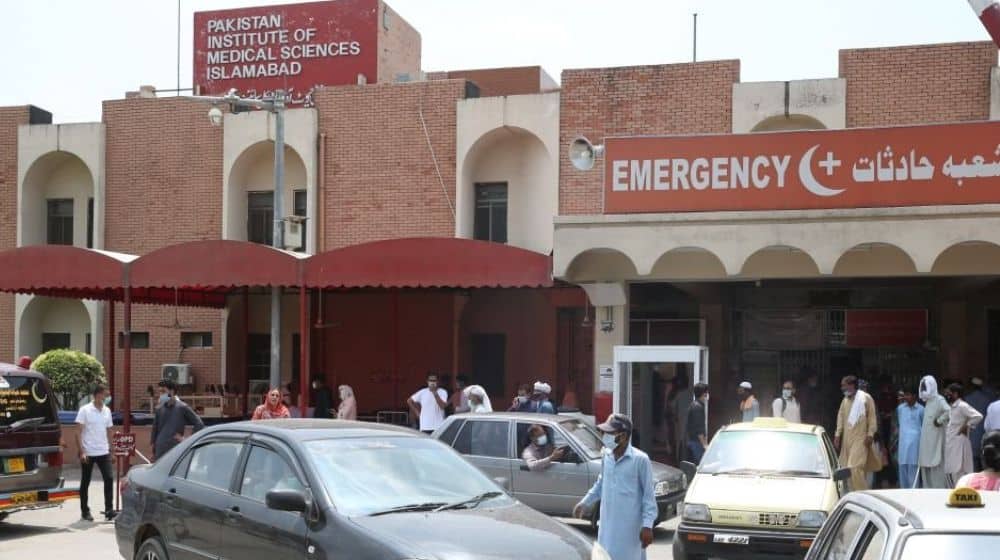A suspected case of Mpox has been reported at the Pakistan Institute of Medical Sciences (PIMS) in Islamabad, marking the first potential incidence of the viral disease in the capital city this year.
The hospital’s spokesperson confirmed that the patient, who had recently returned from abroad, was admitted to a specially designated isolation ward as part of the hospital’s strict infection control measures.
Dr. Naseem Akhtar, a senior official at PIMS, stated that the patient is currently under close observation and is receiving necessary medical care. While the exact diagnosis has yet to be confirmed, the individual’s symptoms align with those typically associated with Mpox. This viral disease, which shares several symptoms with smallpox, including fever, rash, and swollen lymph nodes, has been a focus of concern for global health authorities due to its potential to spread rapidly.
This case is particularly notable as it is the first reported instance of Mpox in Islamabad in 2024. The identification of the suspected case has prompted the hospital to implement rigorous infection control protocols to prevent any possible transmission of the virus. Although the patient’s identity and nationality have not been disclosed, further tests are underway to confirm whether the virus is indeed Mpox.
The emergence of a new variant of monkeypox, referred to as Mpox, has sparked international concern, particularly following its first confirmation outside of Africa in Sweden on August 15. This strain has raised alarms due to its apparent ease of transmission through routine close contact, prompting heightened vigilance and public health measures worldwide. While the exact strain affecting the patient in Islamabad has not been identified, the possibility of this being the same variant as the one in Sweden has led to increased caution.
In response to the suspected case, Pakistan’s national health authorities have escalated their efforts to contain any potential spread of the virus. The Federal Ministry of Health has ramped up contact tracing efforts, particularly focusing on individuals who may have come into contact with the patient. Additionally, airport surveillance has been significantly enhanced, with extra health personnel deployed to monitor travelers and enforce strict screening procedures.
Sajid Shah, a spokesperson for the Federal Ministry of Health, confirmed that genome sequencing is currently being conducted to determine the exact strain of the virus. “Once that’s done, we will be able to say what strain this is,” Shah noted, underscoring the importance of this step in managing the public health response.
The reported case in Islamabad follows the confirmation of a monkeypox case in the Khyber Pakhtunkhwa province just a few days earlier. Local health authorities in the province have also activated their emergency response protocols to manage and monitor the situation. The detection of cases in different regions of Pakistan has put the entire country on alert, with health officials closely monitoring the situation to prevent a broader outbreak.
The emergence of Mpox cases has led to increased public health campaigns aimed at raising awareness about the symptoms and preventive measures associated with the virus. Health officials are urging the public to remain vigilant, particularly those who have recently traveled or come into contact with individuals who may have been exposed to the virus. The government is also working closely with international health organizations to ensure that the response to the potential outbreak is coordinated and effective.
The suspected case at PIMS in Islamabad is a reminder of the ongoing challenges posed by infectious diseases, particularly as global travel and interaction increase the likelihood of cross-border transmission. The hospital’s quick response, coupled with the broader public health measures being implemented by the government, reflects a proactive approach to managing the potential threat posed by Mpox.
As the situation develops, health authorities in Pakistan will continue to monitor the patient’s condition and the results of the ongoing tests. The outcome will be crucial in determining the next steps in the country’s public health response to this emerging threat.




